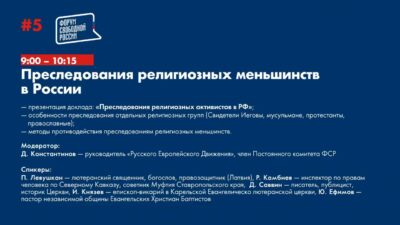Two top European Union officials have rejected suggestions that sanctions imposed on Moscow over its actions in Ukraine could be lifted during the coronavirus pandemic, saying the restrictive measures “do not impede Russia’s capacity” to combat the epidemic, according to a letter seen by RFE/RL.
In a letter dated May 26 and addressed to a group of European lawmakers, European Commission President Ursula von der Leyen and European Council President Charles Michel wrote that the sanctions adopted in 2014 are “deliberately narrowly framed in order to limit the risks of unintended consequences or harm to the wider population.”
“None of the measures foresees a prohibition on the export of food or medicines, vaccines or medical equipment,” they said.
The letter was addressed to 19 members of the European Parliament who had accused Russia of exploiting the coronavirus pandemic to try to get sanctions reviewed or lifted.
“Russian authorities by pursuing such public relation campaigns as sending poorly applicable humanitarian aid to Italy, as well as misinterpreting the statements by the UN officials, might try to sway the position of the EU and its member states leadership regarding the sanctions,” the lawmakers wrote in a letter dated April 3 and addressed to von der Leyen, Michel, and EU foreign policy chief Josep Borrell.
The move came after Russian President Vladimir Putin proposed during a Group of 20 (G20) videoconference in March that a freeze be placed on economic sanctions on “humanitarian” grounds to allow countries to better combat the coronavirus.
The EU sanctions were first imposed in 2014 in response to Russia’s annexation of Ukraine’s Crimean Peninsula and Moscow’s fomenting of conflict in eastern Ukraine.
In March, the EU prolonged by six months asset freezes and visa bans on 175 individuals and 44 entities that the bloc believe has undermined the territorial integrity of Ukraine.
EU leaders are also expected to agree to prolong economic sanctions against Russia, which mainly target the country’s energy and banking sectors, during a videoconference scheduled for June 19.
Separately, EU ambassadors on June 10 agreed to extend the bloc’s investment ban on Crimea by another year.
Russia has reported more than 493,000 coronavirus infections, the third-highest number of cases in the world after the United States and Brazil, with over 6,300 fatalities.
But critics have cast doubt on the low mortality rate and accused authorities of underreporting to play down the scale of the crisis.



